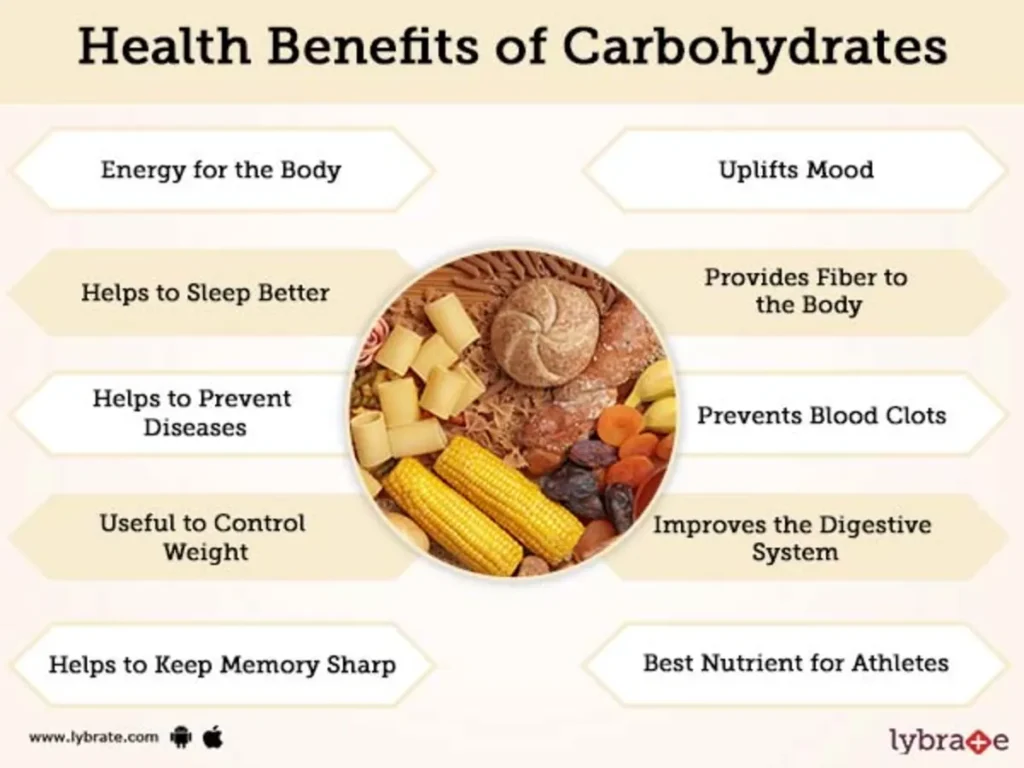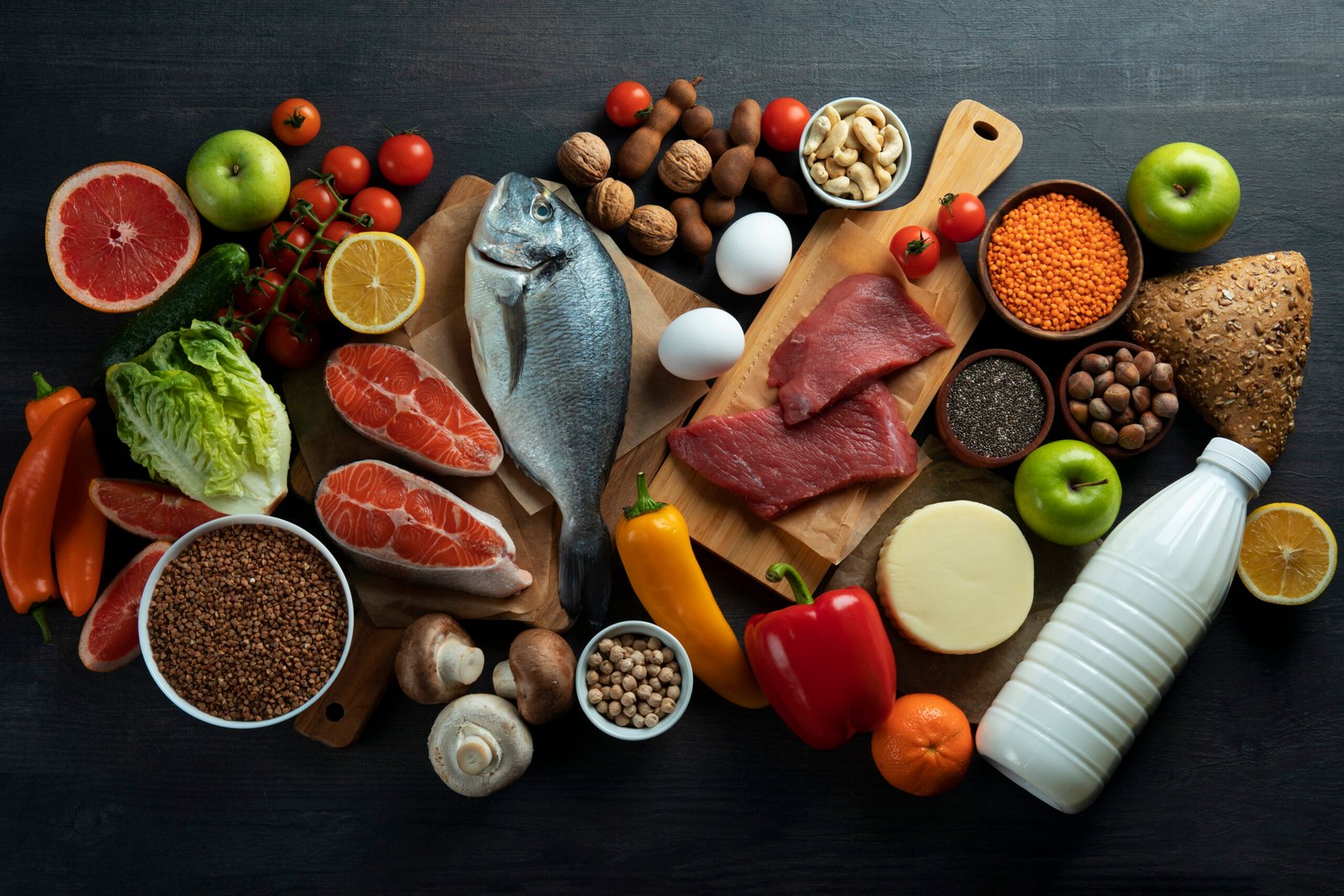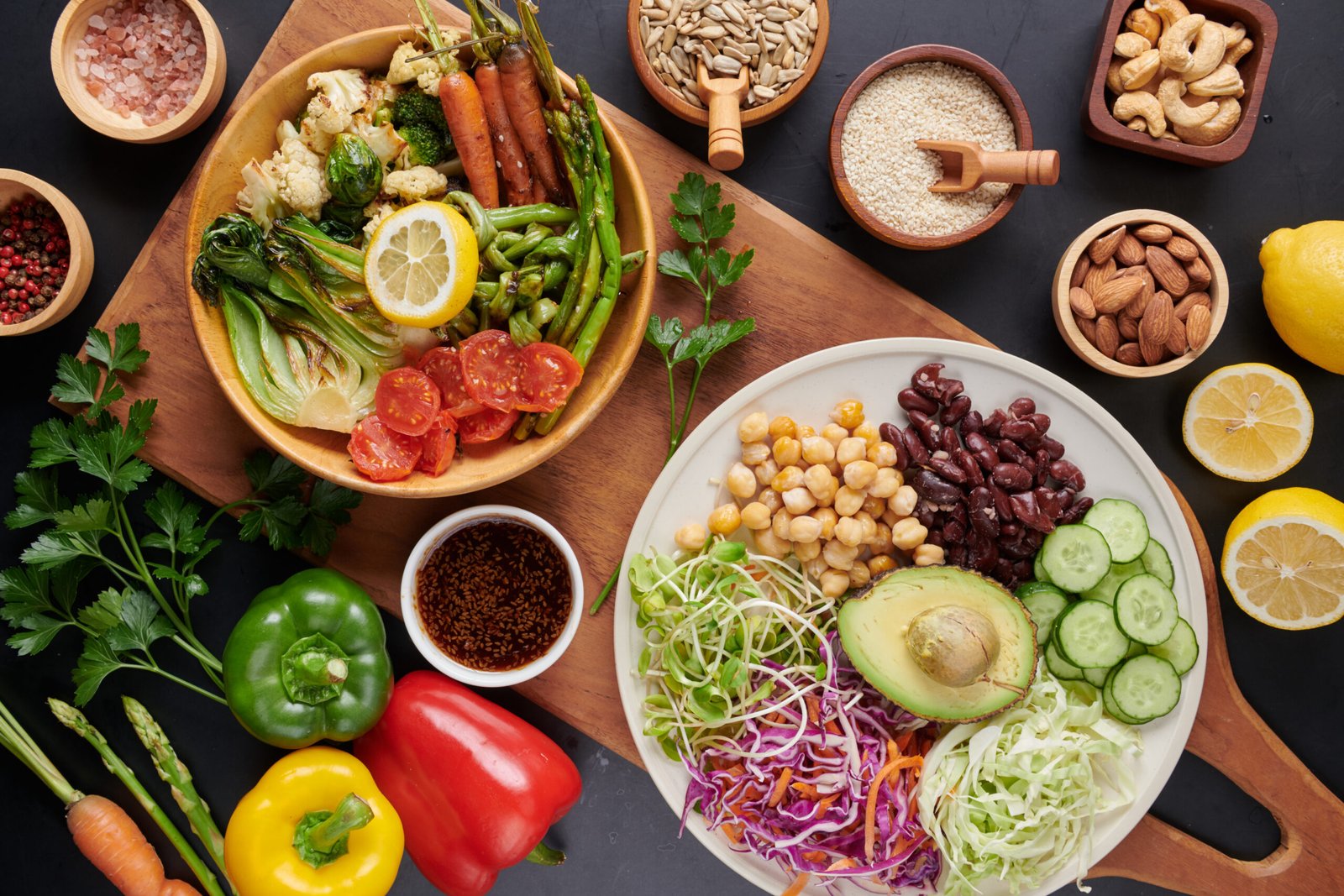Carbohydrates are one of the three main classes of macronutrients, along with proteins and fats. They are organic compounds made up of carbon, hydrogen, and oxygen atoms. Carbohydrates serve as a primary source of energy for the body and play a crucial role in various physiological processes.

There are three main types of carbohydrates:
- Monosaccharides:
These are the simplest form of carbohydrates, consisting of a single sugar molecule. Glucose, fructose, and galactose are common examples of monosaccharides. They are the basic building blocks of more complex carbohydrates. - Disaccharides:
Disaccharides are composed of two monosaccharide units linked together. Common examples include sucrose (glucose + fructose), lactose (glucose + galactose), and maltose (glucose + glucose). Enzymes in the digestive system break down disaccharides into monosaccharides for absorption. - Polysaccharides:
Polysaccharides are complex carbohydrates made up of multiple monosaccharide units. They serve as storage forms of energy in plants and animals. Starch, glycogen, and cellulose are examples of polysaccharides.- Starch:
This is the primary storage form of energy in plants. It consists of long chains of glucose molecules. Foods like potatoes, rice, and grains are rich sources of starch. - Glycogen:
Glycogen is the storage form of glucose in animals, particularly in the liver and muscles. It is broken down into glucose when the body needs a quick energy boost. - Cellulose:
Cellulose is a major component of plant cell walls. While humans lack the enzymes necessary to digest cellulose, it is an essential dietary fiber that provides bulk to the diet and supports digestive health.
- Starch:
Carbohydrates are an essential part of a balanced diet, providing energy for various bodily functions, including brain function and physical activity. However, it’s important to choose complex carbohydrates from whole, unprocessed foods for sustained energy and overall health.
Carbohydrates and your health
Despite their bad reputation, carbohydrates are vital to your health for many reasons.
Providing energy
Carbohydrates are the body’s main fuel source. During digestion, sugars and starches are broken down into simple sugars. They’re then absorbed into the bloodstream, where they’re known as blood sugar (blood glucose).
From there, glucose enters the body’s cells with the help of insulin. Glucose is used by the body for energy. Glucose fuels your activities — whether it’s going for a jog or simply breathing and thinking. Extra glucose is stored in the liver, muscles and other cells for later use. Or extra glucose is converted to fat.
Protecting against disease
Some evidence suggests that whole grains and dietary fiber from whole foods help lower your risk of heart disease and stroke. Fiber may also protect against obesity, colon and rectal cancers, and type 2 diabetes. Fiber is also essential for optimal digestive health.
Controlling weight
Evidence shows that eating plenty of fruit, vegetables and whole grains can help you control your weight. Their bulk and fiber content aids weight control by helping you feel full on fewer calories. Despite what proponents of low-carb diets claim, few studies show that a diet rich in healthy carbs leads to weight gain or obesity.
Carbohydrates are an essential part of a healthy diet, and they provide many important nutrients. Still, not all carbs are equally good for you.
Here’s how to make healthy carbohydrates work in a balanced diet:
- Focus on eating fiber-rich fruits and vegetables.
Aim for whole fresh, frozen and canned fruits and vegetables without added sugar. Or have measured portions of fruit juices and dried fruits, which are concentrated sources of natural sugar, but have more calories. Whole fruits and vegetables have many health benefits. They add fiber, water and bulk, which help you feel fuller on fewer calories. - Choose whole grains.
Whole grains are better sources than refined grains of fiber and other important nutrients, such as B vitamins. Refined grains go through a process that strips out parts of the grain — along with some of the nutrients and fiber. - Stick to low-fat dairy products.
Milk, cheese, yogurt and other dairy products are good sources of calcium, protein, vitamin D, potassium, and other vitamins and minerals. Consider the low-fat versions to help limit calories and saturated fat. And watch out for dairy products that have added sugar. - Eat more beans, peas and lentils.
Beans, peas and lentils are among the most versatile and nutritious foods. They are typically low in fat and high in folate, potassium, iron and magnesium. And they have useful fats and fiber. They are a good source of protein and can be a healthy substitute for meat, which has more saturated fat and cholesterol. - Limit added sugars.
Added sugar probably isn’t harmful in small amounts. But there’s no health benefit to having any amount of added sugar, such as in cookies and pastries. The Dietary Guidelines for Americans recommend that less than 10% of calories you eat or drink every day come from added sugar. Eating or drinking too many foods with sugar can also cause you to take in more than the calories you need each day.













